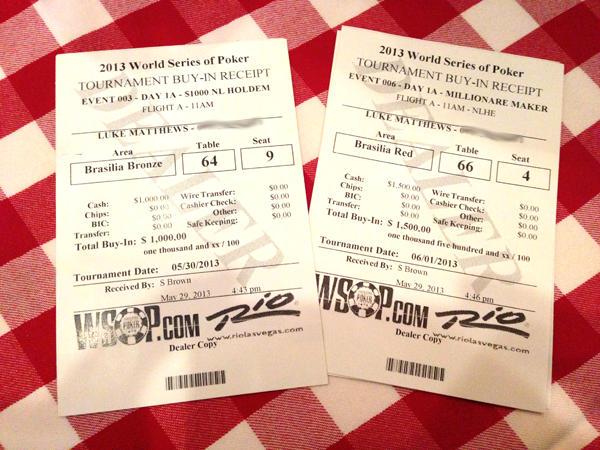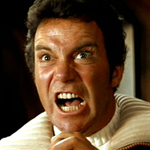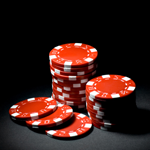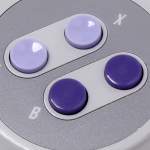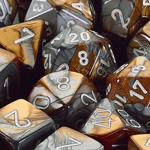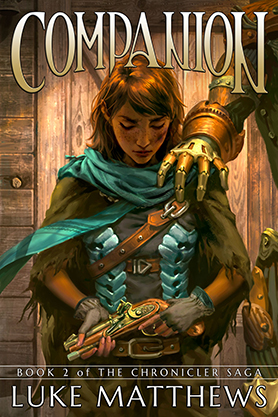I felt like I needed to write a blog post, so that’s why I’m here.
I’m honestly not sure where this one’s going to go, because I’m sort of firing from the hip on this one.
So let’s find out together, shall we?
The big impetus for writing this right now is I’ve been thinking a lot lately about big life changes. Taking on new projects, letting go of old hobbies, moving in and out of groups and communities and cliques. My life is in a state of flux right now that started almost a year ago, and doesn’t show much sign of slowing down. There is stability here: my wife, my dogs, our new house. But my own endeavors and hobbies are changing and shifting again, in ways that I wasn’t really expecting. Starting with my relationship to poker.
Poker has been an important part of my life for nearly 15 years. In fact, about 5 years ago, I wrote this blog post about the measurably positive effect it has had on my life. I’ve been playing regularly since 2004, and hosting games regularly since roughly 2007.
As of November, I won’t be hosting games anymore, and I’m taking the entirety of 2019 off from playing the game.
And it’s a weird feeling for me. On the one hand, I know I’m completely burned out on playing poker, and even more burned out on hosting games. On the other, it’s been a cornerstone of my life and hobbies for nearly a third of my life. Making the decision to stop hosting a game I’ve been running for a decade was not an easy one. But it’s not the first time I’ve come to the conclusion I needed to step away from something that dominated my free time for so long. In my post “On Leaving Things Behind“, I talk about retiring from a LARP I’d played for over a decade, and reconnecting with some players several years later.
Leaving Amtgard was an extraordinarily hard decision for me. It was the largest non-work part of my life at the time. That decision hurt, and I went through a full-on grieving process when it had solidified in my mind.
But this decision feels a lot easier. Mostly because there are so many direct parallels to leaving Amtgard, but without nearly as many social consequences for me, and poker is a game I can definitely go back to if I feel the urge to play after 2019. Leaving it behind is hard, but it’s something I need to do, and leaving Amtgard is so directly analogous that it has prepared me for this moment.
With Amtgard, I was driven out by internal politics that ignited spectacular burnout. With poker, it’s more just me being tired. Yeah, I’m a bit burned out on playing the game, which is definitely having an effect on my performance, but more I’m just tired of being host. Hosting a regular game means both dedicating space to the endeavor and being constantly prepared for each event. I have to block off my calendar, and the poker game (which used to be weekly but slowly dropped to bi-weekly then monthly) has to come first for me. The hardest part is that it doesn’t come first for most of the people who play anymore. For the players, it is a secondary diversion they can float in and out of at will as their lives allow. For me, it’s a dedicated time-sink whether the game actually goes off or gets canceled (which happened more and more over the years).
My other main gaming hobby, board games, has a much different dynamic. With poker, if I can’t draw 6+ players, the game likely gets canceled because in most cases, short-handed games aren’t really worth doing (at least not to my group). With board games, I only need a total of 3-4 players for a game to work, and usually my wife and I will fill two of those seats. It’s much easier to get a board game night to go than poker, so it almost never feels like I’ve sunk time and effort into something that fails.
There are many things over the years I’ve pursued, become invested in, and left. Amtgard, podcasting, working at Nintendo. All things that were massive parts of my life, right up until they weren’t. So, it’s time I leave poker behind, too. Probably not forever, but I’m definitely committing to taking the entirety of 2019 off of the game. My hope is that, just like with Amtgard, the creative pursuits I’ve got swirling around in my head will fill the void and keep me occupied, but also actually make me happy.
I guess that’s where the second part of this post comes in: discussing my newest endeavor, Pixelart Meeple.
Back in 2010, I started a podcast called After The Fact. You can find links to episodes right here on this website, and even look through all the old posts about it. That show started a 5+ year love affair with podcasting that ended in 2016 with the final episode of Trade Secrets. It was a lot of work, but being on those podcasts was some of the most fun I’ve ever had in my life. I was able to take a couple of my favorite hobbies at the time and translate them in to some fun media for others to enjoy.
Which is exactly what I hope to do with Pixelart Meeple. As a “brand”, Pixelart Meeple is already on Twitter, but has been way more successful on Instagram, where I’ve already garnered over 1000 followers in a little under four months. The intent is to translate something I’m passionate about – the hobby-within-a-hobby of modifying and upgrading my board games – into a channel on social media and YouTube that I hope will a) fill a niche (because WOW is it a niche), b) entertain people, and c) teach people how to recreate a lot of the DIY projects I do on a regular basis.
While I’m very familiar with audio work after five years of podcasting, I haven’t really done much in the way of video work since I graduated college twenty years ago. Editing software I can use on my laptop now was relegated solely to massively expensive dedicated Avid machines back then, and I’m really looking forward to re-learning it all from scratch. And I’m not being facetious – I think it’ll be fun.
And that’s the key, I think: I’m genuinely looking forward to it. I love learning new things, embarking on new endeavors. Like most people, there was a time in my life when I was really afraid not just to do new things, but to let go of old ones. But I’m finding that’s not the case anymore, at least not to as significant a degree. It’s not that I wasn’t afraid to let go of poker – I was, and I agonized over it for a long time – but the act of actually doing it was much more a relief than a fear. And I’ve already found something to occupy both the physical space I used to dedicate to poker, and the time and money it used to take up in my life.
Change can be scary, but without it life becomes boring. Things you once loved can become a slog, and holding onto them just because you think they define you is the fastest path to hating your favorite activities. I learned this the hard way once, and as I get older it becomes easier to realize that it’s not the individual activities that I have to hold onto, but my ability to shift and grow and learn new things, so that when that hobby or activity I used to love becomes a chore, I always have another on the horizon to take its place.



